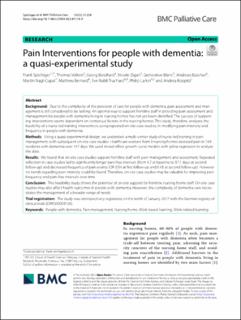Please use this identifier to cite or link to this item:
https://doi.org/10.21256/zhaw-26595Full metadata record
| DC Field | Value | Language |
|---|---|---|
| dc.contributor.author | Spichiger, Frank | - |
| dc.contributor.author | Volken, Thomas | - |
| dc.contributor.author | Bosshard, Georg | - |
| dc.contributor.author | Zigan, Nicole | - |
| dc.contributor.author | Blanc, Geneviève | - |
| dc.contributor.author | Büscher, Andreas | - |
| dc.contributor.author | Nagl-Cupal, Martin | - |
| dc.contributor.author | Bernard, Mathieu | - |
| dc.contributor.author | Rubli Truchard, Eve | - |
| dc.contributor.author | Larkin, Philip | - |
| dc.contributor.author | Koppitz, Andrea | - |
| dc.date.accessioned | 2023-01-13T11:55:09Z | - |
| dc.date.available | 2023-01-13T11:55:09Z | - |
| dc.date.issued | 2022-12-29 | - |
| dc.identifier.issn | 1472-684X | de_CH |
| dc.identifier.uri | https://digitalcollection.zhaw.ch/handle/11475/26595 | - |
| dc.description.abstract | Background: Due to the complexity of the provision of care for people with dementia, pain assessment and management is still considered to be lacking. An optimal way to support frontline staff in providing pain assessment and management for people with dementia living in nursing homes has not yet been identified. The success of supporting interventions seems dependent on contextual factors in the nursing homes. This study, therefore, analyzes the feasibility of a nurse-led training intervention, using repeated on-site case studies, in modifying pain intensity and frequency in people with dementia. Methods: Using a quasi-experimental design, we undertook a multi-center study of nurse-led training in pain management, with subsequent on-site case studies. Healthcare workers from 3 nursing homes assessed pain in 164 residents with dementia over 147 days. We used mixed-effect growth curve models with spline regression to analyze the data. Results: We found that on-site case studies support frontline staff with pain management and assessment. Repeated reflection in case studies led to significantly longer pain free intervals (from 4.7 at baseline to 37.1 days at second follow-up) and decreased frequency of pain events (OR 0.54 at first follow-up and 0.43 at second follow-up). However no trends regarding pain intensity could be found. Therefore, on-site case studies may be valuable for improving pain frequency and pain-free intervals over time. Conclusion: This feasibility study shows the potential of on-site support for frontline nursing home staff. On-site case studies may also affect health outcomes in people with dementia. However, the complexity of dementia care necessitates the management of a broader range of needs. | de_CH |
| dc.language.iso | en | de_CH |
| dc.publisher | BioMed Central | de_CH |
| dc.relation.ispartof | BMC Palliative Care | de_CH |
| dc.rights | https://creativecommons.org/licenses/by/4.0/ | de_CH |
| dc.subject | Nursing home | de_CH |
| dc.subject | Pain management | de_CH |
| dc.subject | People with dementia | de_CH |
| dc.subject | Work-based learning | de_CH |
| dc.subject | Work-related learning | de_CH |
| dc.subject | Human | de_CH |
| dc.subject | Health personnel | de_CH |
| dc.subject | Pain | de_CH |
| dc.subject | Quality of life | de_CH |
| dc.subject | Dementia | de_CH |
| dc.subject.ddc | 362: Gesundheits- und Sozialdienste | de_CH |
| dc.subject.ddc | 616.8: Neurologie und Krankheiten des Nervensystems | de_CH |
| dc.title | Pain interventions for people with dementia : a quasi-experimental study | de_CH |
| dc.type | Beitrag in wissenschaftlicher Zeitschrift | de_CH |
| dcterms.type | Text | de_CH |
| zhaw.departement | Gesundheit | de_CH |
| zhaw.organisationalunit | Institut für Pflege (IPF) | de_CH |
| dc.identifier.doi | 10.1186/s12904-022-01118-9 | de_CH |
| dc.identifier.doi | 10.21256/zhaw-26595 | - |
| dc.identifier.pmid | 36581883 | de_CH |
| zhaw.funding.eu | No | de_CH |
| zhaw.issue | 1 | de_CH |
| zhaw.originated.zhaw | Yes | de_CH |
| zhaw.pages.start | 228 | de_CH |
| zhaw.publication.status | publishedVersion | de_CH |
| zhaw.volume | 21 | de_CH |
| zhaw.publication.review | Peer review (Publikation) | de_CH |
| zhaw.webfeed | G: Gesundheit im Alter | de_CH |
| zhaw.funding.zhaw | Schmerzreduktion bei Menschen mit Demenz im Heim (PID) | de_CH |
| zhaw.author.additional | Yes | de_CH |
| zhaw.display.portrait | Yes | de_CH |
| zhaw.relation.references | https://doi.org/10.5281/zenodo.6359400 | de_CH |
| Appears in collections: | Publikationen Gesundheit | |
Files in This Item:
| File | Description | Size | Format | |
|---|---|---|---|---|
| 2022_Spichiger-etal_Pain-interventions-for-people-with-dementia.pdf | 1.14 MB | Adobe PDF |  View/Open |
Show simple item record
Spichiger, F., Volken, T., Bosshard, G., Zigan, N., Blanc, G., Büscher, A., Nagl-Cupal, M., Bernard, M., Rubli Truchard, E., Larkin, P., & Koppitz, A. (2022). Pain interventions for people with dementia : a quasi-experimental study. BMC Palliative Care, 21(1), 228. https://doi.org/10.1186/s12904-022-01118-9
Spichiger, F. et al. (2022) ‘Pain interventions for people with dementia : a quasi-experimental study’, BMC Palliative Care, 21(1), p. 228. Available at: https://doi.org/10.1186/s12904-022-01118-9.
F. Spichiger et al., “Pain interventions for people with dementia : a quasi-experimental study,” BMC Palliative Care, vol. 21, no. 1, p. 228, Dec. 2022, doi: 10.1186/s12904-022-01118-9.
SPICHIGER, Frank, Thomas VOLKEN, Georg BOSSHARD, Nicole ZIGAN, Geneviève BLANC, Andreas BÜSCHER, Martin NAGL-CUPAL, Mathieu BERNARD, Eve RUBLI TRUCHARD, Philip LARKIN und Andrea KOPPITZ, 2022. Pain interventions for people with dementia : a quasi-experimental study. BMC Palliative Care. 29 Dezember 2022. Bd. 21, Nr. 1, S. 228. DOI 10.1186/s12904-022-01118-9
Spichiger, Frank, Thomas Volken, Georg Bosshard, Nicole Zigan, Geneviève Blanc, Andreas Büscher, Martin Nagl-Cupal, et al. 2022. “Pain Interventions for People with Dementia : A Quasi-Experimental Study.” BMC Palliative Care 21 (1): 228. https://doi.org/10.1186/s12904-022-01118-9.
Spichiger, Frank, et al. “Pain Interventions for People with Dementia : A Quasi-Experimental Study.” BMC Palliative Care, vol. 21, no. 1, Dec. 2022, p. 228, https://doi.org/10.1186/s12904-022-01118-9.
Items in DSpace are protected by copyright, with all rights reserved, unless otherwise indicated.